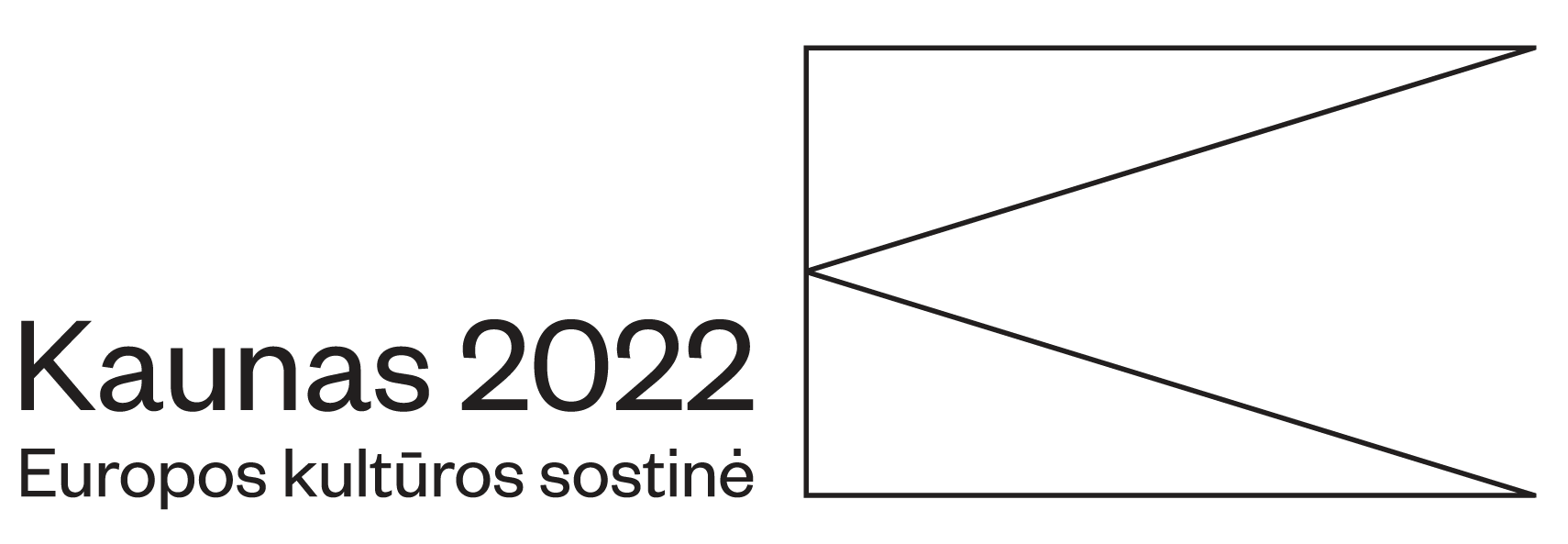What happens to a city when the European Capital of Culture year ends? Perhaps cultural life is replenished with new festivals, but it is more essential to see people discover their artistic flair and witness stronger, more self-confident communities? Legacy is both a stronger identity and a more robust economic blood flow. Sometimes it’s a newfound love, even a new family. Maybe it’s just a cosier backyard. On 19 May, the fifth European Capital of Culture Forum invited to discuss how Kaunas will live beyond 2022 and hear inspiring and thought-provoking international examples.
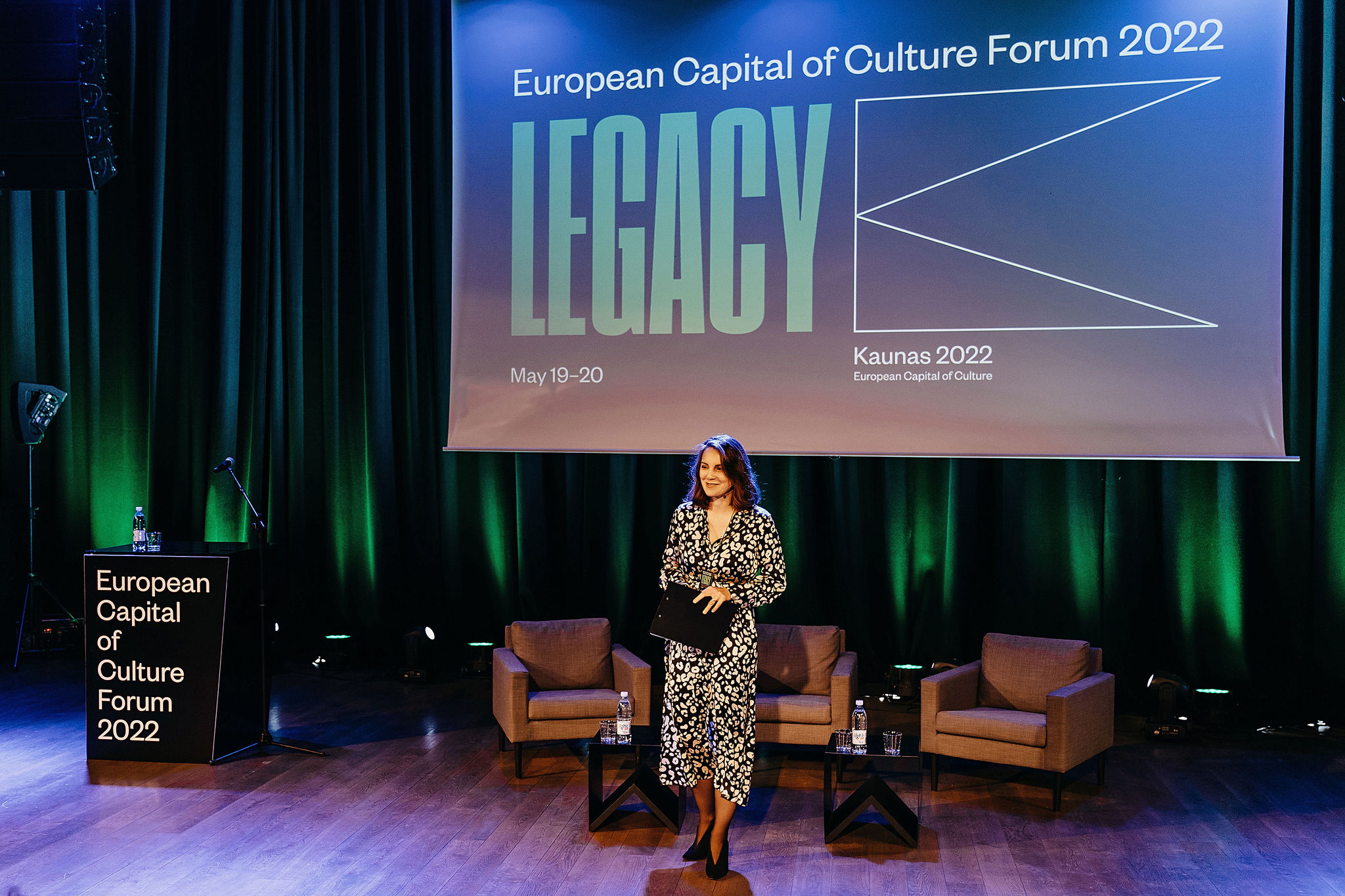
Ana Kočegarova-Maj, Head of the Kaunas 2022 Programme, welcomed the Kaunas and European cultural community to the Žalgirii Arena amphitheatre and reminded them that the first such forum in 2018 was organised in search of a recipe for a successful European Capital of Culture (ECoC). How to create projects that have a lasting impact and inspire ambition and change in the local community? This Spring, as the Kaunas 2022 programme gathered momentum and the second act of the Contemporary Kaunas Myth trilogy, Confluence, approached, the forum became a much-needed pause and opportunity to reflect on the work that has already been done and a place to ask questions – how will we live, what goals will we set for ourselves in the coming years? Moreover, as the whole world is witnessing the war in Ukraine, the meeting in Kaunas provided an opportunity to hear first-hand the enormous power of transforming one’s professional skills in the face of terror and the importance of appreciating what we have here and now.
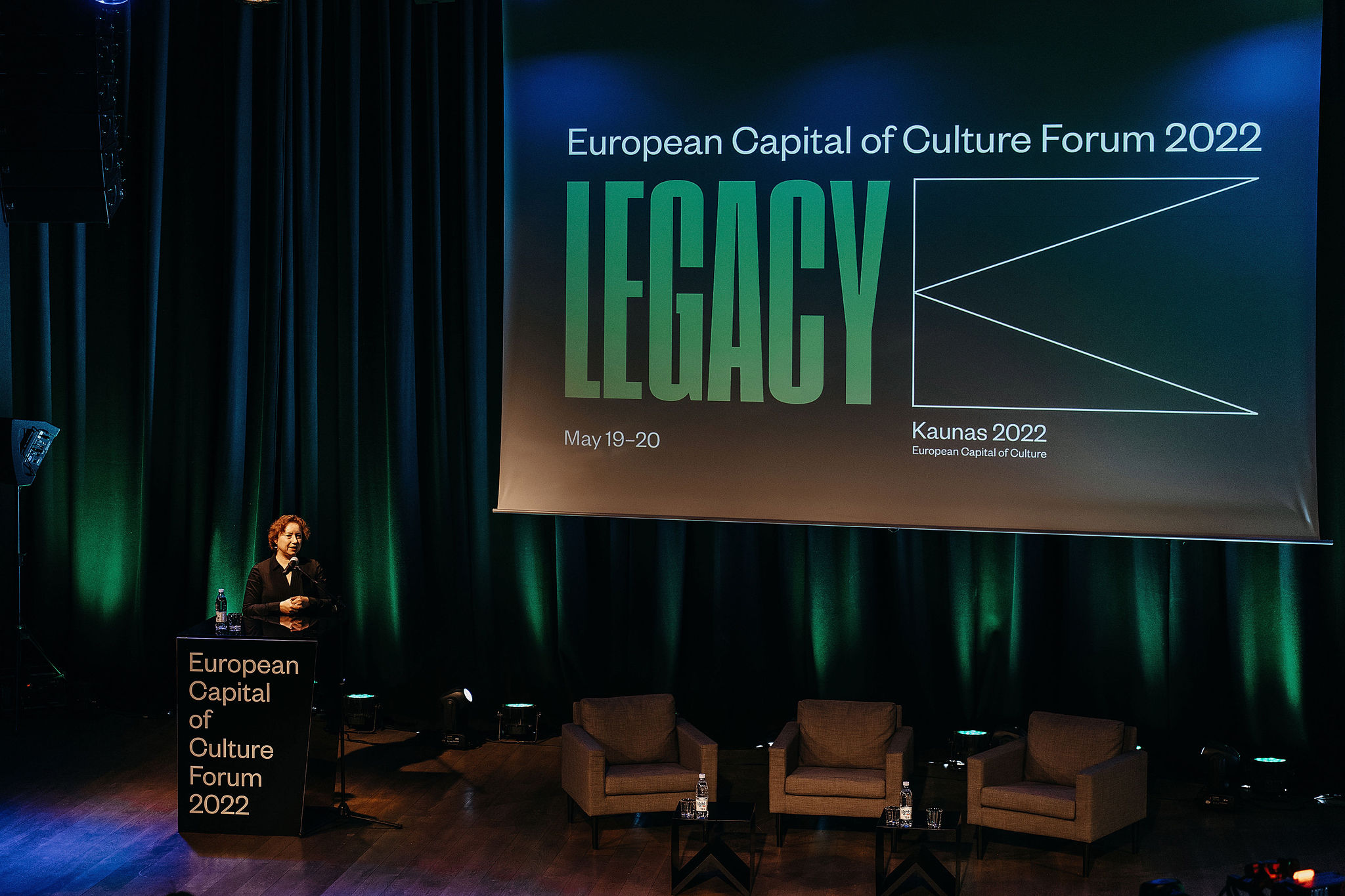
Practical examples from Lithuania and abroad
The first speaker of the ECoC Forum was sociologist and artist Tadas Šarūnas. The expert, currently conducting an external evaluation of Kaunas 2022’s activities and legacy, playfully presented possible ways to define value and meaning. As an example of how the impact of culture and art cannot be measured in numbers alone, he presented the answer to the question of the meaning of life and the universe, as given by the writer Douglas Adams in his book “Hitchhiker’s Guide to the Galaxy”. A computer that has done countless years of calculations only spelt out ‘42’ in the book. According to the sociologist, numbers seem meaningless when you do not consider what is untouchable and incalculable. Next year, we will be looking at a study based primarily on small success stories that happened in Kaunas. Each of them is part of one immense legacy, one city body.
Beatriz Garcia, Associate Director at the Centre for Cultural Value in Liverpool (UK), gave a more scientific view of what a challenge of the scale of the ECoC can bring to a city. Liverpool’s success as a European Capital of Culture in 2008 was due to many internal and external factors. For example, shortly after the city won the bid, it was announced that the 2012 Olympic Games would be held in the UK capital, London, which was an added boost. Liverpool’s European pride also grew. As the country witnessed Brexit, this city hosted some of the largest rallies for remaining in the EU. Garcia also stressed the importance of sharing data and knowledge – reinventing the wheel each time is pointless. A qualitative assessment of the legacy can only be made by looking at the figures collected from the perspectives of specialists from different fields.
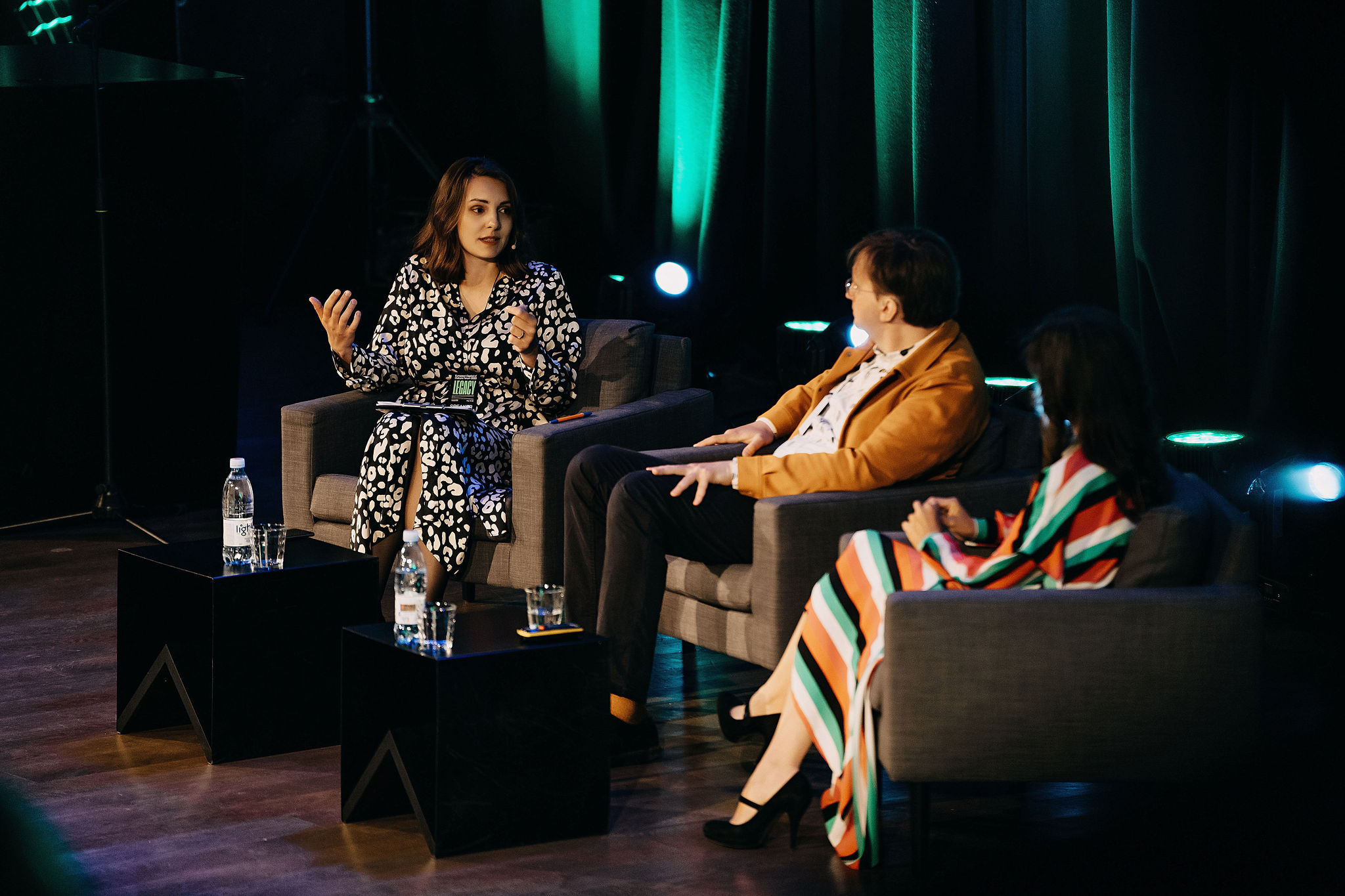
The latter thesis was in a way extended by the presentation “Gold and Coal: Artistic Community Experience”. It presented the work of the Italian director, contemporary circus artist and teacher Roberto Magro with the communities of the Kaunas district as a success story.
One of the speakers, Lukas Alsys, Deputy Head for Culture at Culture, Sports and Science Department, Kaunas District Municipality Administration, reminded that the ECoC title is shared by two municipalities this year. According to him, the inhabitants of the Kaunas district – as many as 25 towns – by joining the co-creation process invited by Kaunas 2022 had the chance to realise themselves in an unexpected way, proving that the language of art and culture is the most universal.
“We are far away from cultural centres, and cultural life here is based on ethnography and folklore – this is not a bad thing, but the repertoire is inherited, the content does not attract external attention, and as an elder, it is important for me that we grow not only in the number of new pavements but also in terms of the emotional connection with our land,” said Šarūnas Pikelis, head of the Batniava eldership. He recalled the community’s acquaintance with R. Magro, who came here to create the performance “Visions”, inspired by the works of Vytautas Mačernis and Čiurlionis: “We remembered that we actually had a forest, we saw it with new eyes – after the premiere, it became a meeting place for people, the forest came to life.”
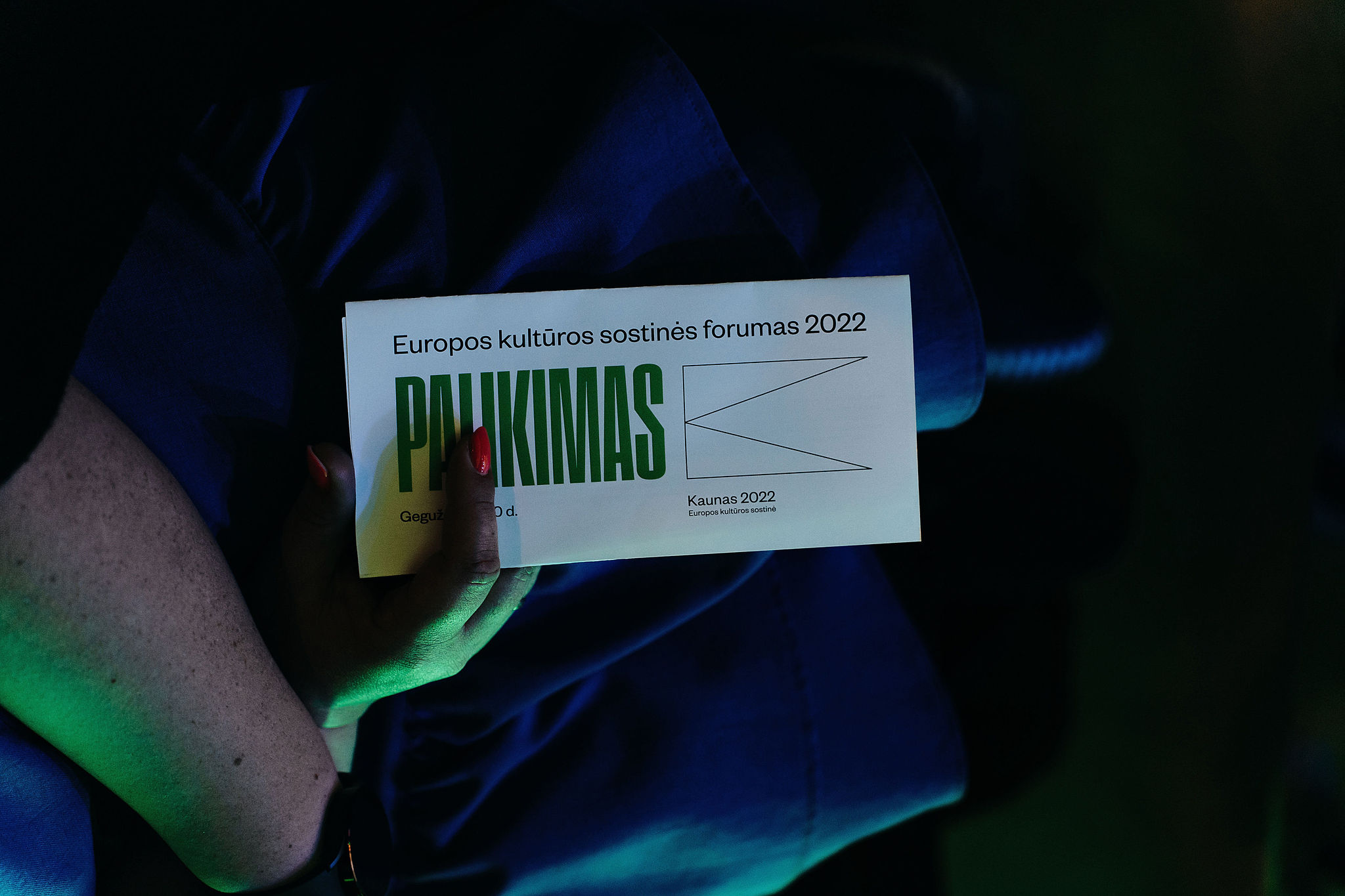
Magro himself invited the Forum participants to participate in a playful experiment, presenting a unique working method based on seven invisible strings that can be used to control creativity. “One needs an aesthetic experience to teach the mind to be amazed,” said the Italian, recalling that last year in Batniava, he was impressed by the warmth of the people and the dedication of the Lithuanian artists to the process even in the pouring rain. He then told about his trip to Linksmakalnis, a village literally translated as “Funny mountain”. “I remember the first time I went there. I didn’t find a mountain or any fun – just the fact that it was a secret radio town during Soviet times. But they took me to a small museum of angels, and that’s how we created the play “Radio angels”,” recalled Magro, who made Linksmakalnis a famous town. He and contemporary circus professionals from all over the world who have visited the Kaunas area are still in contact with local young people. Amazingly, one Linksmakalnis teenager is already attending a circus school in Kaunas and is seriously considering such a career.
Lessons from the front
At the invitation of Kaunas 2022, Yulia Khomchyn, Head of the Lviv Cultural Strategy Institute, attended the ECoC Forum. The Ukrainian, who briefly introduced the principal idea of the Institute, devoted her presentation to showcasing how her work and that of her colleagues has changed since 24 February, when Russia started the war in Ukraine. The international partnerships that had been established previously took on a new meaning: the Institute sends factual information on the war to colleagues abroad. It has been able to effectively protect heritage assets with the knowledge and advice of foreign partners. Stained glass windows in churches covered in wood, sculptures hidden under sandbags, theatres turned into places of refuge – this has been the daily reality of Lviv, one of Ukraine’s most beautiful cities, for three months.
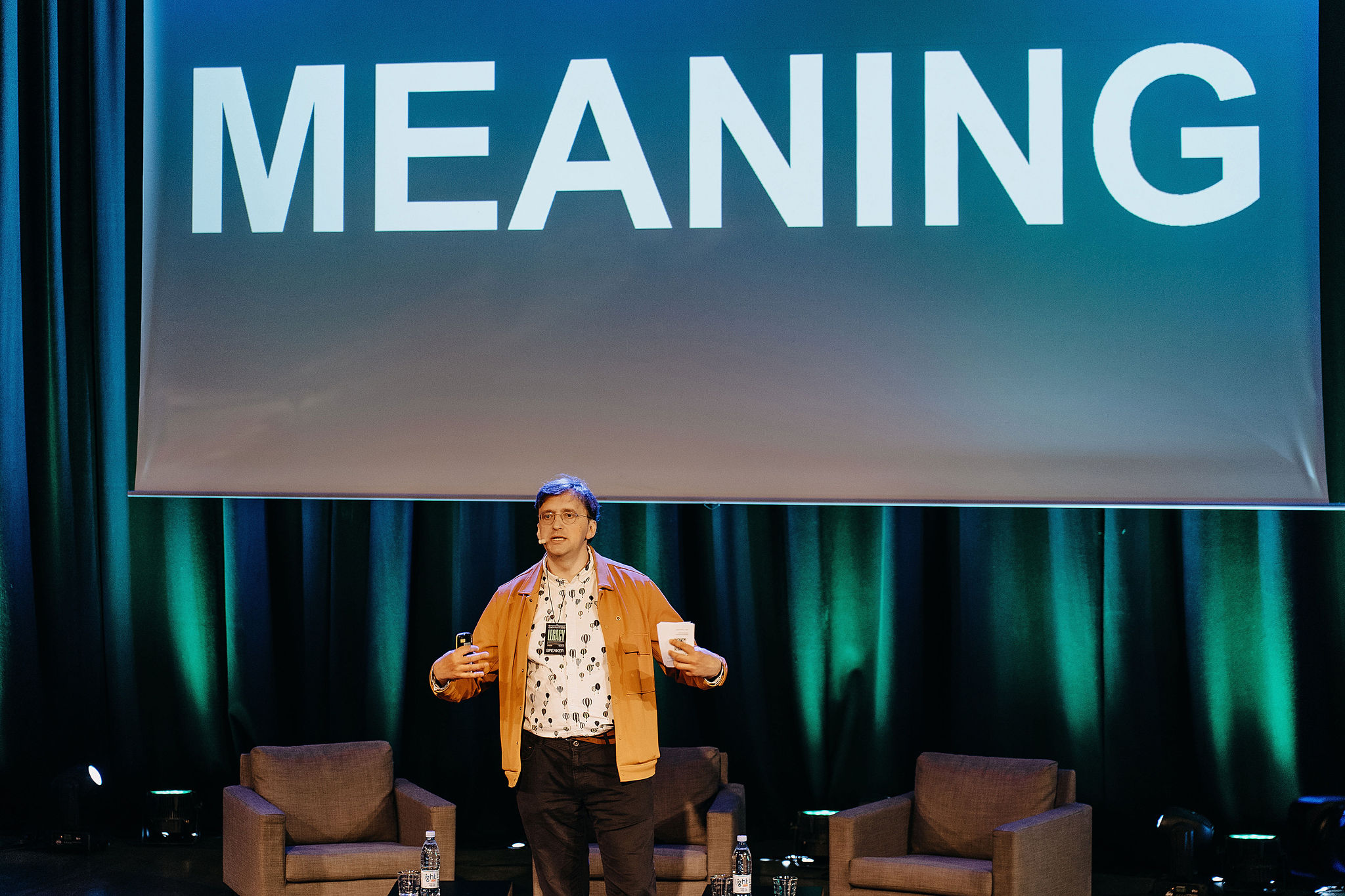
“We do what ongoing events demand so that we don’t lose what we are made for”, said the guest from Lviv. The CSI also acts as a humanitarian aid centre for Ukrainians arriving from cities under heavy attack and provides information for those in the cultural field, both those wishing to leave and those staying behind to defend their country. Khomchyn also shared a sensitive video clip, an excerpt from the diary of a jazz festival director fighting on the frontline.
“In the face of war, we came out much stronger than we thought. We were able to transform ourselves quickly and professionally – it is something we keep in mind when we think about our potential to rebuild Ukraine after the victory,” said the cultural expert. She also announced that she would like to organise the Ukrainian contemporary art triennial in Kaunas this year – Lublin in Poland is also being considered. However, there is still plenty of time before October. Anyone with ideas is invited to get in touch and share them.
Growing culture, desire to continue
In the afternoon, Agata Etmanowicz, Audience Development Specialist, Vice President of Impact Foundation from Poland, invited representatives of the Kaunas cultural field to share their experience gained in the training courses provided by Kaunas 2022. She presented the journey of the programme from 2019 to today. The impact of the programme on their organisations was shared s presented by representatives of the Kaunas Biennial, Kaunas Vincas Kudirka Public Library and Kaunas IX Fort Museum. “The experiences of the organisations are different, but the positive effect seen by all is the increased cooperation between Kaunas cultural institutions and the partnerships that have been established,” Monika Straupytė, Acting Head of the Cultural Management Department of the Kaunas Vincas Kudirka Library, told after the presentation.
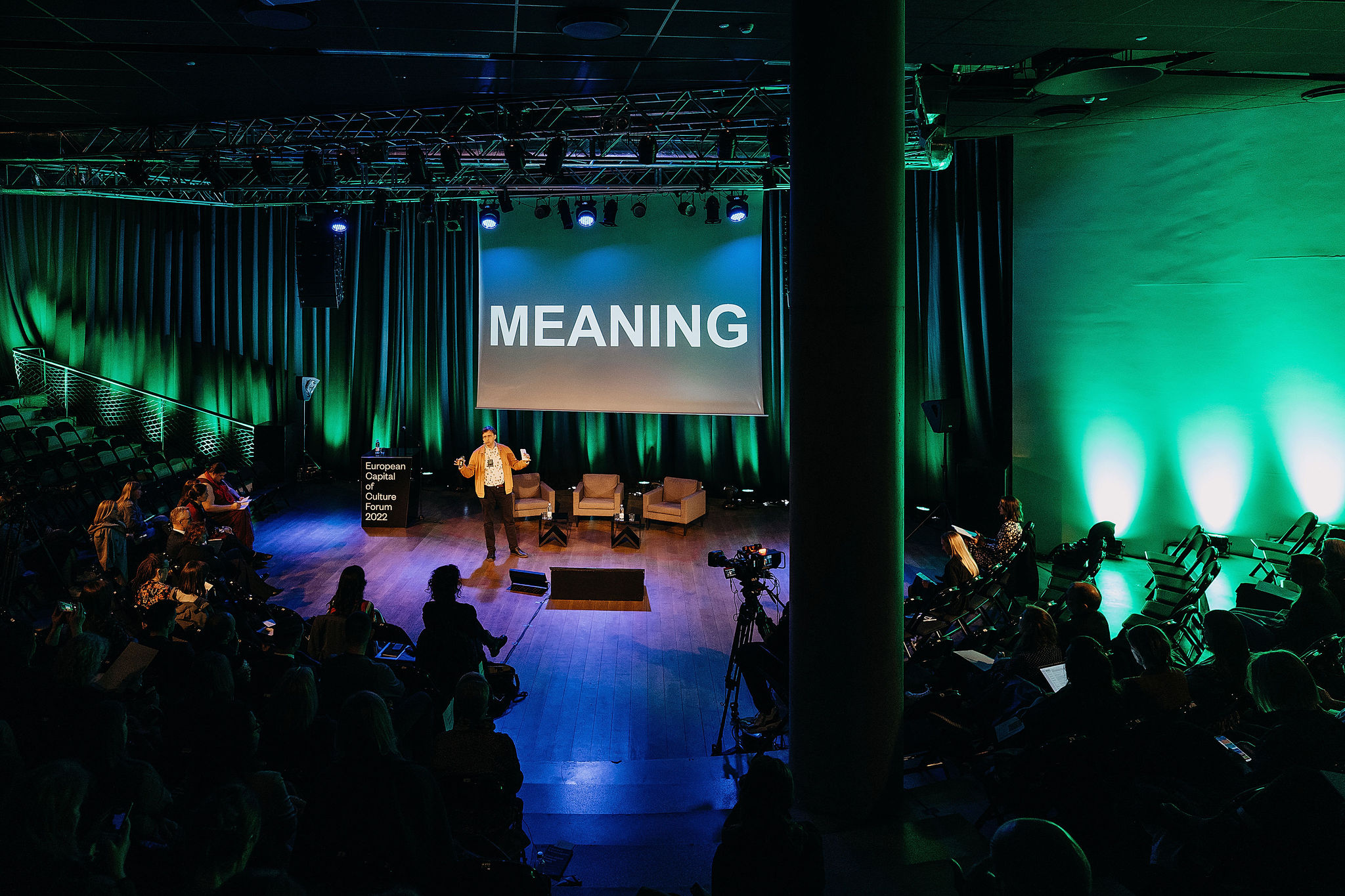
Immie Jonkmann, Head of Leeuwarden-Friesland 2018, shared the case of the region of the Netherlands, which celebrated the ECoC title four years ago. This year, Leeuwarden and Friesland are presenting the first ECoC legacy event, the Arcadia triennial. Among its highlights are hundreds of trees planted in mobile containers, which ‘travel” around the city to remind people of the importance of nature. According to Jonkman, the attitude of the authorities towards cultural projects has changed a lot since 2018, and it has become much easier to get support for ideas and funding.
Both the guest from the Netherlands and Virginija Vitkienė, Head of Kaunas 2022, who followed her, agreed that it is difficult to talk about the legacy of the Kaunas project at this stage when all the activities are just getting underway. Vitkienė presented the most important Kaunas highlights and initiatives, stressed the importance of having supportive partners and revealed which Kaunas 2022 projects will definitely live on in the years to come. These include the ConTempo and Magenta festivals, Kaunas Literature Week, etc.
The main day of the fifth European Capital of Culture Forum ended with the discussion “Post ECOC. A New Beginning”. It was attended by I. Jonkmann, V. Vitkienė, L. Alsys, as well as the Vice-Minister of Culture of the Republic of Lithuania, Albinas Vilčinskas, and the Vice-Mayor of Kaunas, Mantas Jurgutis. All agreed that the activities should not cease after 2022. After all, the continuation of the project was already discussed in the project application, and both the Government and municipal representatives agreed to it. This is also included in the Kaunas Cultural Strategy.
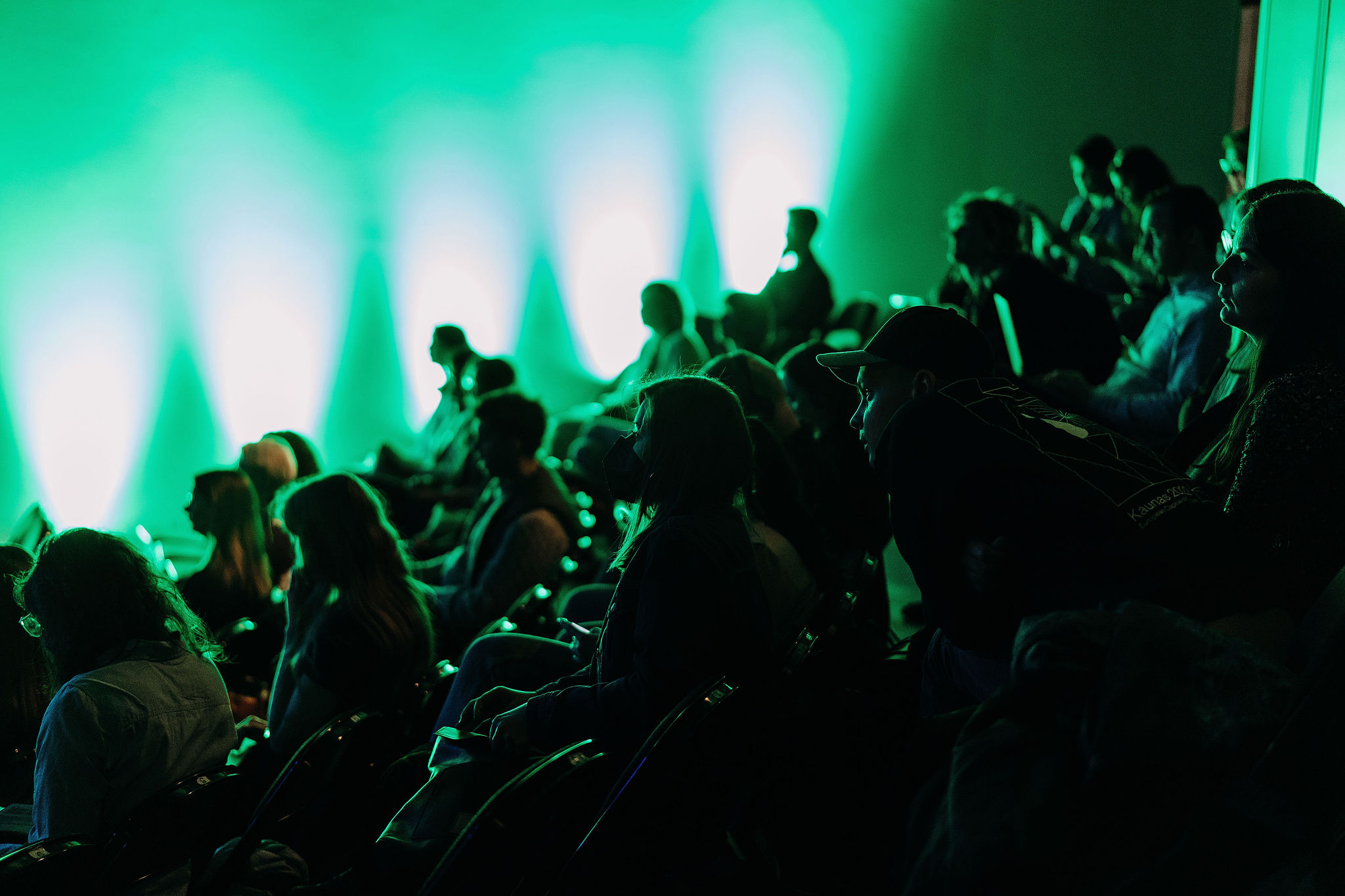
On Friday morning, some of the guests of the ECC Forum took part in Etmanowicz’s workshop, while others were preparing for the Confluence weekend marathon. Over 60 events – concerts, performances, workshops, etc. – are planned for Kaunas, which celebrates its birthday on 20-22 May.
The complete Confluence programme is available at kaunas2022.eu/santaka or on the Kaunas 2022 mobile app.
